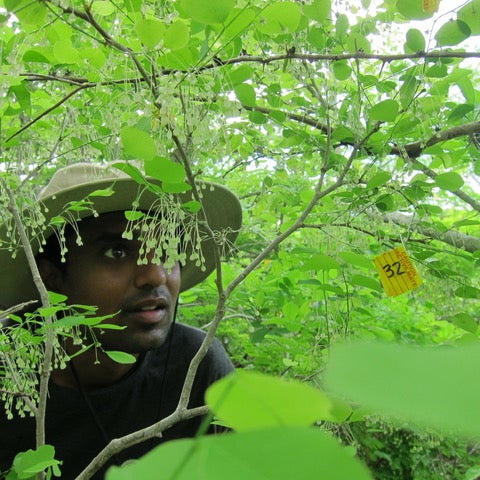 Name: Arjun Chandrasekhar
Name: Arjun Chandrasekhar
Title: Teaching Assistant Professor
Department: Computer Science
Bio:
I spent most of my childhood in Chandler, Arizona, with additional stops in Greenriver, Wyoming and Corvallis, Oregon. After graduating high school, I attended the California Institute of Technology (Caltech) in Pasadena, California, where I studied computer science. Afterwards, I came to the University of California San Diego (UCSD), where I eventually earned my PhD in Bioinformatics and Systems Biology. My dissertation research focuses on biological distributed algorithms - in other words, I study how natural systems, such as ant colonies and the brain, solve problems, with the hope that this information will inspire new approaches for human-designed algorithms. In addition to conducting research, I have dedicated significant time towards teaching, serving as an adjunct instructor in computer science at UCSD and the University of San Diego (USD). Starting in the Fall of 2020, I will be serving as a teaching assistant professor in the School of Computing and Information at the University of Pittsburgh (Pitt).
What are your research interests?
I completed my PhD at the Salk Institute at UCSD, under the supervision of Dr. Saket Navlakha. My research focuses on the emerging field of biological distributed algorithms. Nature abounds with examples of biological systems, such as insect colonies, networks of neurons, slime molds, and bacteria swarms, that manage to overcome environmental obstacles and challenges in a distributed manner. Rather than relying on a centralized processor to direct control flow, the systems use limited local communication to produce complex collective behavior. Not only are these systems quite elegant in their emergent properties; the challenges they overcome often have direct analogues to problems in computer science and combinatorial optimization. How do these systems succeed under limited constraints? It is often said that necessity is the mother of invention. Biological systems without the luxury of central control have had the opportunity to innovate and refine methods on evolutionary time-scales. It thus stands to reason that if we can understand how these systems behave, we will arrive at a new, and perhaps improved, understanding of distributed computing. My research seeks to understand how these systems operate, and reverse-engineer efficient distributed optimization algorithms. To this point I have focused on two particular systems: ant colonies, and individual neural arbors.
Why did you choose to come to SCI?
The honest answer is that long-term, teaching-track faculty appointments at good schools in desirable cities are few and far between! But I also am excited to teach at a school with a demonstrated commitment to excellent teaching. The investment in full-time teaching faculty is impressive enough, and I really liked that both the job listing and all of my interviewers emphasized the university’s emphasis on a polymathic approach to education. I am also excited for the opportunity to teach in a department with a strong long-term vision for an expanded, interdisciplinary information science curriculum.
How does your research/teaching align with SCI’s mission?
I have taken courses on and taught a wide variety of disciplines, including: computer programming and data structures, discrete math, theory of computation, algorithm design, bioinformatics, statistics, data science, and distributed computation. All of these subjects have been essential to my research. As such, my academic journey has prepared me well for SCI’s interdisciplinary vision for the future of the curriculum. My firm grounding in the fundamentals of computer science will fortify the quality of undergraduate computer science instruction at Pitt. Furthermore, my background in statistics, data science, and bioinformatics will be useful for expanding our undergraduate and graduate course offerings in information science. Finally my unique research interests and collaborations will allow me to develop a course on biologically-inspired algorithms that will differentiate the SCI curriculum from the curricula at many other engineering departments.